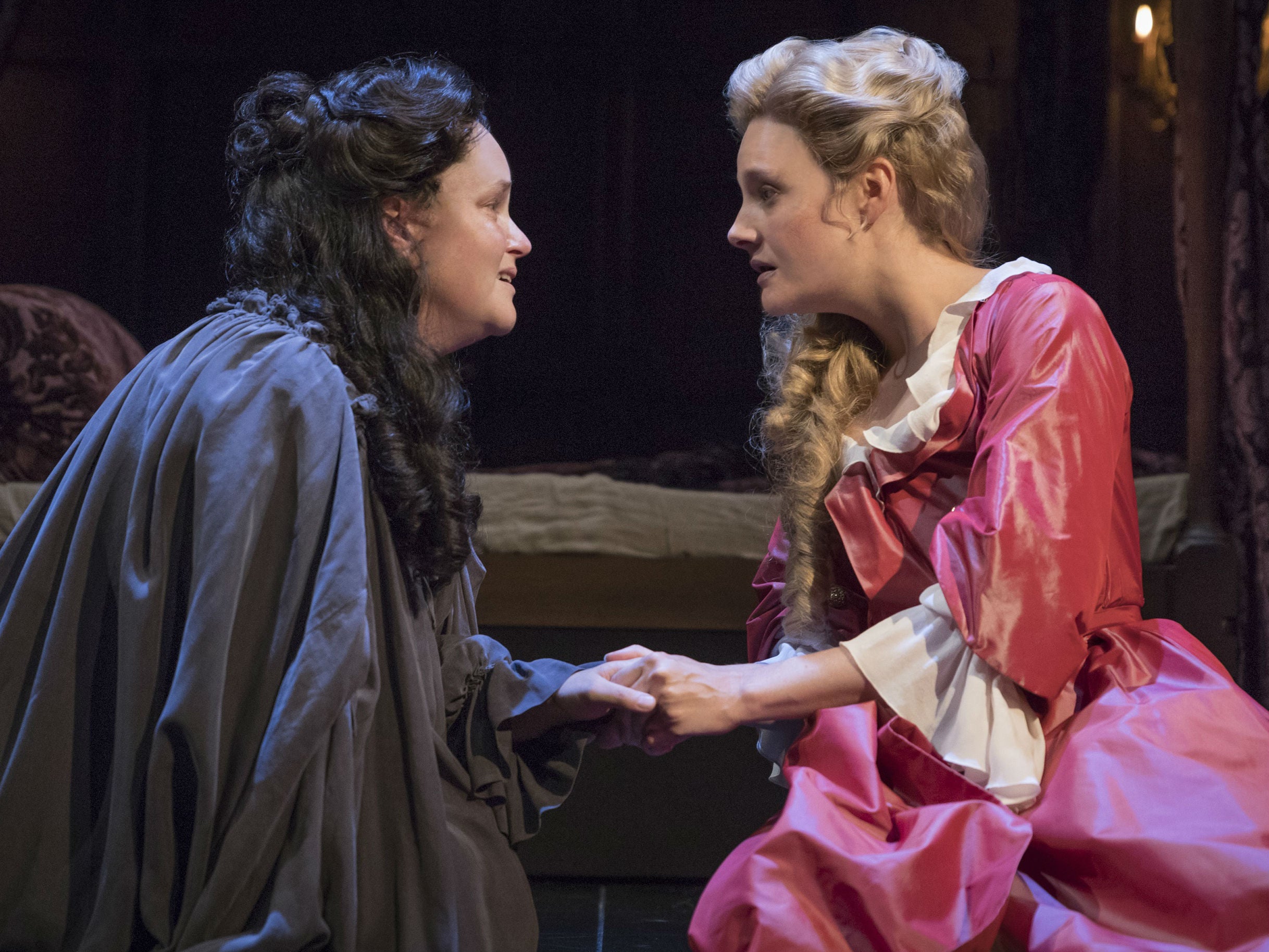Queen Anne, Theatre Royal Haymarket, London, review: Romola Garai gives a vivid turn in a stilted production
Helen Edmundson's play isn't sharp enough in telling the story of the Stuart monarch

Your support helps us to tell the story
From reproductive rights to climate change to Big Tech, The Independent is on the ground when the story is developing. Whether it's investigating the financials of Elon Musk's pro-Trump PAC or producing our latest documentary, 'The A Word', which shines a light on the American women fighting for reproductive rights, we know how important it is to parse out the facts from the messaging.
At such a critical moment in US history, we need reporters on the ground. Your donation allows us to keep sending journalists to speak to both sides of the story.
The Independent is trusted by Americans across the entire political spectrum. And unlike many other quality news outlets, we choose not to lock Americans out of our reporting and analysis with paywalls. We believe quality journalism should be available to everyone, paid for by those who can afford it.
Your support makes all the difference.Helen Edmundson has a penchant for unlikely protagonists. A few years back, her play The Heresy of Love shone a fascinating light on the real-life figure of Sister Juana Ines de la Cruz, a controversial 17th century Mexican nun and esteemed poet and dramatist who protested her right to express her devotion to God through the life of the mind.
Now she turns her attention to one of England’s less familiar monarchs, a woman seemingly ill-equipped to rule or to join the ranks of those royals whose reigns make great theatre. Edmundson sticks up for her in a piece that suggests it’s unjust that she has dwindled in the popular mind to an association with brick mansions and a style of furniture. I wish I could say that the result is as compelling as the piece about the nun.
The last of the Stuart monarchs, Anne was the daughter of the deposed Catholic James but herself a staunch Protestant. She was debilitated by the 17 pregnancies that almost all ended in miscarriage – though one son survived to the age of 11. She reigned for only 12 years (1702-14) but managed to oversee some momentous events – the 1707 Act of Union with Scotland, the victories in the War of the Spanish Succession. The topical resonances – the difficulties with Europe and with the Scots; national debt and rows about the cost of wars; the rise of two-party politics through the in-fighting between the Whigs and the Tories – have, however, a nudging, dutiful feel in Natalie Abrahami’s large-cast production which has its work cut out wielding the great wodges of exposition needed for a piece with such intricate back-stories and complicated factionalism. The lampoons which punctuate the evening – a grotesquely guyed Anne, say, delivered of a fart in a phantom-pregnancy skit – need more scurrilous verve than they are given here.
The main focus is on the passionate relationship, before and during the reign, between Anne and her long-time friend, Sarah Churchill, who would become the Duchess of Marlborough. Playing the latter, Romola Garai vividly projects the glamour and manipulative fake warmth of this duplicitous power-behind-the-throne, as Sarah exploits the monarch’s schoolgirl crush on her in order to further the career of her military-hero husband and the cause of the Whigs.
Emma Cunniffe’s excellent Anne is, at first, all embarrassing neediness, shy, sickly and retiring to the point of passive-aggression. But, once crowned, she gradually grows in self-reliance and integrity. There’s an ugly estrangement between the two women and the Queen transfers her affections to a watchful waiting woman (Beth Park), while reckless, unhinged Sarah plots to get her revenge by publishing intimate letters from Her Majesty.
There are several triangles but their points are never sharpened sufficiently or tellingly arranged and – although in her duty and piety Anne seems to be setting a precedent or modern monarchy – the show struggles for that contemporary spin on historical material achieved by Stephen Jeffreys in The Libertine or Jessica Swale with Nell Gwynn. The play was well received when it premiered at Stratford’s more intimate Swan Theatre in 2015. Coming to it for the first time here, I felt that it was rather stiltedly written and offered more of a crash course than inspired drama.
Queen Anne is at the Theatre Royal Haymarket until 30 September
Join our commenting forum
Join thought-provoking conversations, follow other Independent readers and see their replies
Comments